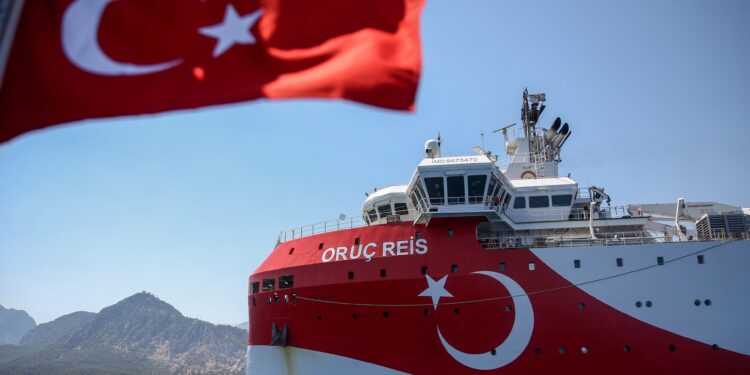Turkey is seeking to expand its influence in Africa and boost energy security, and is set to send its 86-metre research vessel Oruc Reis to explore offshore oil reserves in Somalia next month.
According to a Bloomberg report, the move, confirmed by the director of the Somali oil ministry, Mohamed Hashi, could help diversify Turkey’s crude oil supplies and is part of Ankara’s growing push to strengthen ties in a region where China, Russia, the Gulf states and the West are competing for influence.
Economic growth
With the continent’s mineral wealth and a growing population that could drive a new wave of economic growth, the focus on Africa makes a strong case for Turkey to flex its international muscle there, according to Bloomberg.
“Africa is interesting for Turkey because it is a point where it can try out all the tools and objectives of its newly acquired active foreign policy,” Bloomberg quoted Batu Coskun, a researcher at the Ankara-based Libyan think tank Sadiq Foundation, as saying. “Soft power on the one hand, such as aid, education and Turkish language centers. Trade and economic relations on the other.”
According to Bloomberg, Somalia is the best place to see this, as Turkey operates its largest overseas military base and Turkish companies run the capital’s port and airport.
Turkish drone company Baykar, run by President Recep Tayyip Erdogan’s son-in-law Selcuk Bayraktar, has supplied an unknown number of TB2s to Somalia, expanding Somalia’s offensive against al-Shabaab.
Power game
Earlier this year, Turkey’s parliament approved Erdogan’s proposal to send naval support to Somali waters amid a surge in piracy caused by insecurity in the Red Sea.
“For Turkey, Somalia offers a geostrategic location to enhance its influence in the Horn of Africa and Indian Ocean region,” said Omar Mohamud, a senior East Africa analyst at the International Crisis Group. “The engagement with Somalia has served as a test case and cornerstone of Turkey’s overall strategy to deepen diplomatic, trade and security ties across the African continent.”
Since famine decimated Somalia’s population in 2011, Ankara has thrown its weight behind Mogadishu.
Today, young Somalis can attend a state-supported Turkish school run by the Maarif Foundation in Hargeisa and Mogadishu, and according to the Turkish Foreign Ministry, aid in the past decade has exceeded $1 billion, with consumer goods, from medicine to clothing, spread throughout the capital.
“Our connection with Turkey is rooted in centuries of shared Islamic culture,” Bloomberg quoted Mohamed Osman, an 18-year-old student at the Maarif Foundation School in Mogadishu, as saying. “Their support was a turning point.”
Previously a dilapidated shelter for internally displaced persons, the school has been renovated and converted into modern classrooms equipped with computers.
Since 1992, more than a thousand Somali students have received scholarships at Turkish universities, and visa restrictions on Somalis visiting Turkey have been minimal compared to other African countries.
broader strategy
Turkey’s ties with Somalia are part of a broader policy in Africa. Turkey’s exports to the continent reached $28.6 billion in 2023, down from $30.6 billion in 2022, according to data compiled by Bloomberg, with Egypt, Morocco, South Africa and Nigeria accounting for the largest share.
Ankara’s dealings with African countries combine cooperation in intelligence and defence with deals in the mining and energy sectors.
Earlier this year, a delegation led by Turkish Foreign Minister Hakan Fidan visited Niamey, the capital of Niger, and signed a series of deals after the country’s military government expelled French troops and ordered the United States to close its military base.
Niger is the world’s seventh-largest producer of uranium, and Turkish mining company MTA is already looking for gold in the country, and has also held talks with Algeria, Ivory Coast and Zimbabwe in the past three months.
Turkey has signed similar deals with Algeria, with Algeria’s state energy company and its Turkish counterpart Turkish Petroleum saying they will explore for oil and gas. Avro Turk has also made efforts to enter Burkina Faso’s gold market, and Turkish Airlines now flies to some of the continent’s most remote corners.



